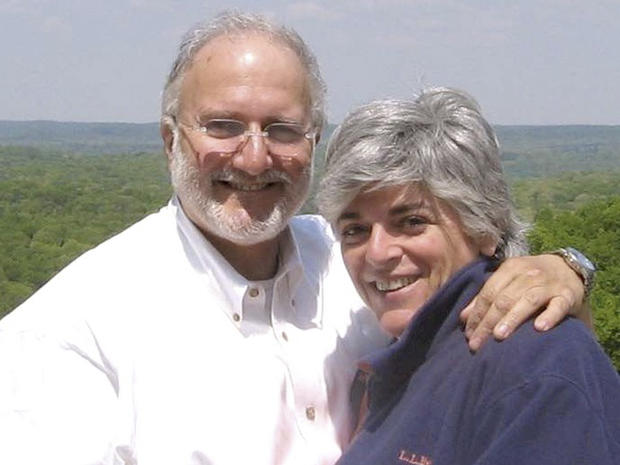American held in Cuba appears before Supreme Court
HAVANA -American contractor Alan Gross appeared in person before Cuba's Supreme Court this morning to plea for a reversal of the 15-year sentence he is serving for crimes against the security of the Cuban State.
A "definitive decision" is expected to be handed down in the coming days.
Gross, a Potomac, Md. native, is represented by Cuban lawyer Nuris Pinero who presented the defense's oral arguments to the judges and then yielded the floor to Gross who, according to a Cuban statement, took advantage of the right to have the last word in his appeal.
According to a note published on the website Cubadebate.cu, Gross thanked the court for giving him the opportunity "to personally explain [his criteria] to the Peoples Supreme Court judges."
Neither Gross' American lawyer, Peter Kahn, nor his wife Judy Gross -- said to be recovering from surgery for an undisclosed illness -- attendined. Both, however, were present when Gross went on trial last March.
Gross, 62, was held for 15 months before being tried on accusations of smuggling in satellite communication devices prohibited under Cuban law. He had been arrested in December 2009 in Havana.
The U.S. contractor, a long-time development worker, denies that he represented any threat to the Cuban government or that his work was subversive. Cuba said that at trial Gross claimed he was "used and manipulated" by his employer and did not know he was violating Cuban law.
Gross worked for DAI, a Maryland-based company that subcontracted a U.S. Agency for International Development program designed to create an internet platform that could operate outside of the control of the Cuban regime, which tightly controls internet access. The program dates back to the Bush Administration.
The United States is demanding that Cuba release Gross, saying he was only providing internet access to Jewish groups on the island so they could communicate with each other and with other Jews around the world and has committed no crimes. The leadership of the Cuban Jewish community has denied any contact with Gross but the former vice-president of the Beth Shalom Temple, William Miller, has told CBS News that he had met more than once with the American contractor at the island's largest synagogue. Miller was a government witness during the trial.
The same two U.S. consular officials who have had access to Gross during his imprisonment and who attended his trial were seen entering the courthouse this morning.
Gross' wife has begged the Cuban government to send her husband home on humanitarian grounds, even sending a letter expressing remorse for her husband's work directly to President Raul Castro last August. She says her husband has lost 100 pounds since being arrested.
The family has also asked for his release on humanitarian grounds as his daughter just had a double mastectomy and his mother-in-law is suffering from inoperable cancer.
The Cuban government views Washington's current programs to "develop civil society" on the island as just a continuation of the more than half-a-century long efforts to undermine the revolution brought to power by Fidel Castro in 1959. He led the country until 2006 when illness forced him to relinquish control to his brother Raul.
The U.S. State Department has said that Gross' imprisonment is a major obstacle to any further improvement in relations between the two countries, which do not have diplomatic relations but simply maintain Interests Sections in each other's capital. But various Cuban analysts point out that while President Obama came to office talking about changing policy toward the communist island, he has not done much more than roll-back restrictive regulations to what they were in the Clinton era.
A statement emailed to the press by Gross lawyer Kahn said, "Friday's hearing affords Alan another opportunity to reiterate, through his Cuban counsel that his actions on the island were never intended to be -- and in fact never were -- a threat to the Cuban Government."
Last March, former U.S. President Jimmy Carter visited Gross in the Havana military hospital where he is being held during a trip to the island shortly after Gross's sentencing. Carter lobbied Cuban President Raul Castro for Gross' release, although he said publicly that doing so was not the purpose of his trip. According to Carter, Castro said he could not consider pardoning Gross until the legal process had run its course.
It's not known if the Cuban court will issue a decision on the case today. It's possible that it will not do so for several weeks.
